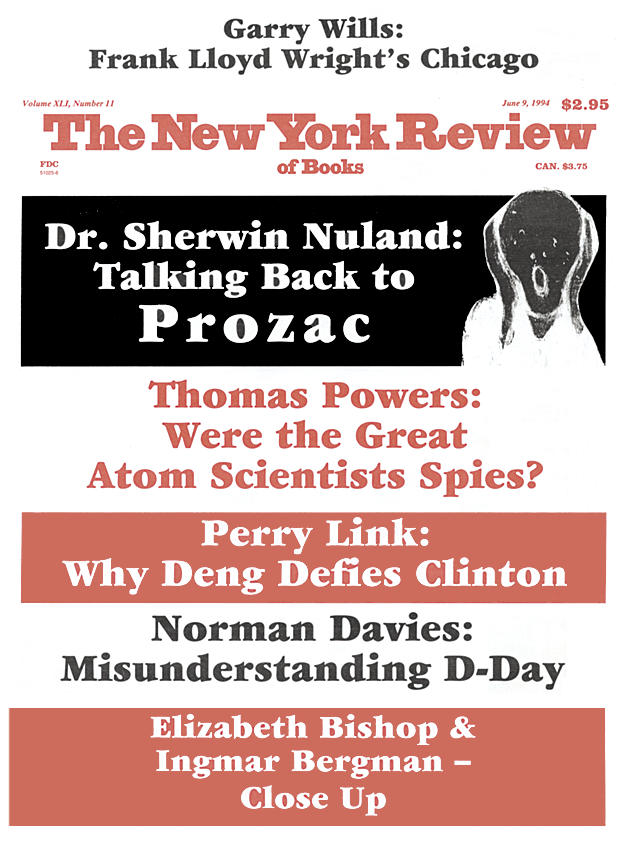In response to:
'I Had No Other Thrill or Happiness' from the March 24, 1994 issue
To the Editors:
In The New York Review of March 24, 1994, Joyce Carol Oates writes that First Lieutenant William Calley “was court martialed and sentenced to life imprisonment as a first degree murderer—but pardoned by President Richard Nixon in 1969, presumably because mass murder committed in a US Army uniform is something other than mass murder.”
Unfortunately, Ms. Oates’ account contains some erroneous information. In 1969, the Army charged Lieutenant Calley with the premeditated murder of “not less than 102 Vietnamese civilians.” He was tried by General Court Martial in 1971 and was convicted of the premeditated murder of not less than 22 Vietnamese civilians and with an assault with intent to murder a Vietnamese child. The court martial (consisting of senior military officers) sentenced him to dismissal from the service, forfeiture of all pay and allowances, and confinement at hard labor for life.
The Convening Authority approved the findings and sentence but reduced the period of confinement to 20 years. Lieutenant Calley’s conviction was reviewed by the military courts of appeal and by the United States Court of Appeals for the Fifth Circuit. The Secretary of the Army commuted his confinement to 10 years after the military appeals were concluded.
President Nixon’s role in this matter was limited to ordering that Lieutenant Calley not be confined in the stockade until his military appeals were completed. When these appeals had been completed, the President notified the Secretary of the Army in 1974 that he had reviewed the case and would take no further action. When President Nixon left office, Lieutenant Calley was serving a 10 year sentence. Apparently, he was released from confinement largely as a result of litigation over his petition for a writ of habeas corpus in the federal courts.
On a somewhat ironic note, Judge Griffin Bell (later President Carter’s Attorney General) dissented in the Calley case when it was decided by the Fifth Circuit. Judge Bell believed that Lieutenant Calley had been denied due process because the United States House of Representatives would not make available to his defense the data accumulated by the Congress in its investigation of the My Lai tragedy.
The Supreme Court’s decision in US v. Nixon was cited by Judge Bell as grounds for his dissent.
Anthony B. Cavender
Houston, Texas
This Issue
June 9, 1994


